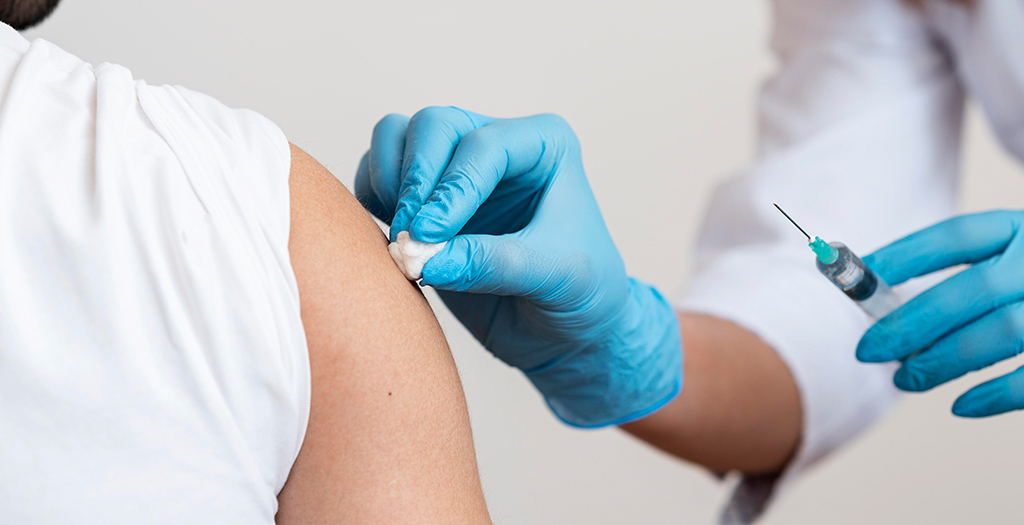Vaccines bring us closer to a healthier Caribbean
CARPHA – Safe and effective vaccines have been available and used for more than 100 years to prevent the spread of contagious, life-threatening diseases. Vaccinations have, in some instances, eliminated diseases that cause mortality, and in the Caribbean region, vaccinations have led to significant improvements in health.
This year, under the theme “Vaccines bring us closer. #GetVax” CARPHA joins its partners and the rest of the world in observing the 19th Annual Vaccination Week in the Americas. This year’s campaign which runs from April 24 to 30, seeks to demonstrate how vaccination connects us to the people, goals and moments that matter to us most, helping to improve the health of everyone, everywhere, throughout life.
Dr. Joy St. John, Executive Director at the Caribbean Public Health Agency (CARPHA) states, “We, in the Caribbean have been well served as our countries have applied high standards in the delivery of vaccination programmes. As the first region to eliminate measles, the Caribbean is the leader among regions of the world. This has allowed our children to survive because they no longer develop severe measles infections. Vaccination remains the most effective way to prevent influenza, measles, and other vaccine-preventable diseases. This scientific innovation also brings us closer to family. Vaccinations are an important part of family and public health. They protect not only you but your entire community.”
Vaccines bring us closer to a world where no one suffers or dies from a vaccine-preventable disease. In 1971, smallpox was successfully eradicated from the Caribbean, followed by the eradication of polio in 1994, and rubella and congenital rubella syndrome in 2015.
Dr. St. John added that if we fall behind in our established immunisation programmes, we run the risk of the recurrence of measles and other previously eradicated diseases. To maintain community protection, Ministries of Health should continue their routine vaccine coverage. This will ensure that a person completes their vaccination schedule in the shortest possible time frame for effective protection. Continued vigilance is important, and general practitioners should remain alert and prepared to take appropriate actions in suspected cases of vaccine-preventable diseases.
CARPHA supports regional strategic vaccination planning in Member States. The Agency is equipped to investigate and manage communicable diseases, including vaccine-preventable diseases, like polio, measles, and rubella.
In March and April of this year, CARPHA Caribbean Regulatory System (CRS) issued technical reviews and certificates of recommendation for emergency use to CARPHA Member States for four COVID-19 vaccines: Oxford-AstraZeneca vaccine by SK Biosciences, COVISHIELD™ by the Serum Institute of India, COMIRNATY(TM) vaccine by Pfizer-BioNTech, and COVID-19 vaccine Janssen by Janssen-Cilag (Johnson and Johnson).
CARPHA has also launched a survey to obtain views on the COVID-19 vaccines of people living in the Region, and to determine their willingness to be vaccinated. The survey is available in English, Spanish and Dutch.
Last year, CARPHA brought together specialists in communications and health promotion from across the Region. The aim was to hone their risk communication skills, so that they can effectively respond to people’s concerns, opinions, emotions, and reactions, in preparation for the roll-out of COVID-19 vaccines in the Caribbean.
Building defences against vaccine preventable diseases is a team effort, and each and every one of us is an integral part of that defence.
Vaccines bring us closer to doing what we love with those we love. Since the emergence of the COVID-19 pandemic, we have made sacrifices to keep our loved ones and community safe from the virus. Now, the COVID-19 vaccines offer us the safest path back to normal by preventing deaths and severe disease.
However, no single tool alone will stop the pandemic. Along with other public health prevention measures, such as wearing a mask, physical distancing and hand sanitizing, the protection provided through the safe and effective use of vaccines will help end the pandemic and bring us closer again.
More information about vaccines can be accessed here.



